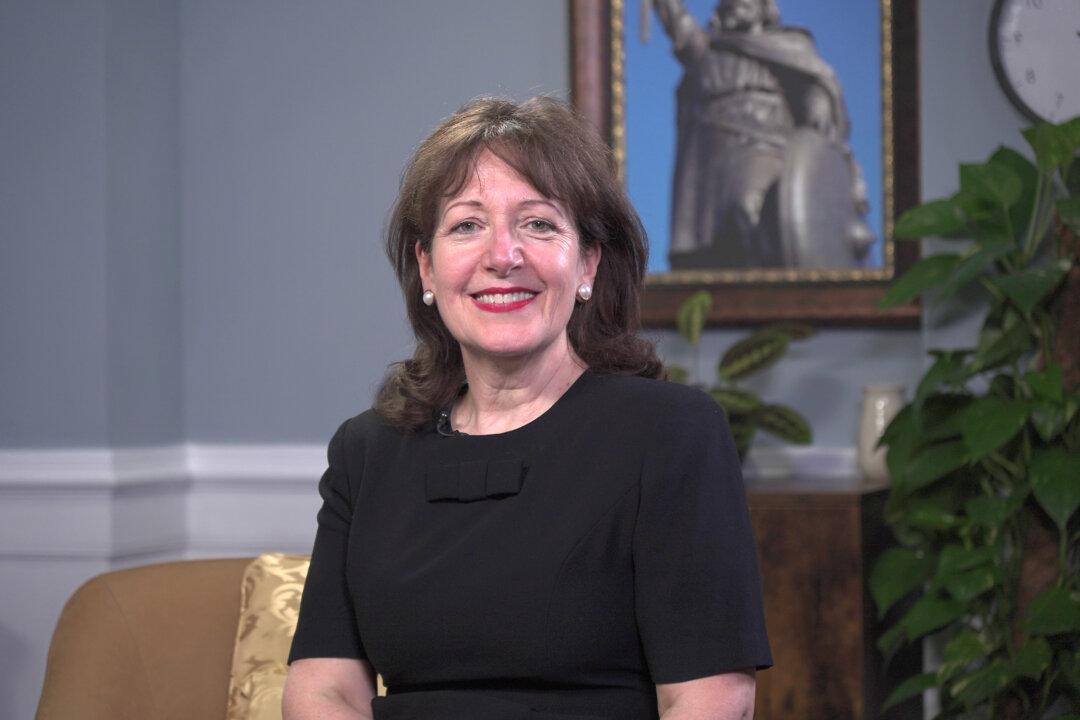An educator specialising in the dangers of the internet online pornography has warned that children are encountering harmful content at increasingly younger ages.
Speaking to NTD’s Lee Hall for the “British Thought Leaders” programme, Mary Sharpe, CEO of The Reward Foundation, said early access to online porn can drastically affect children’s mental and physical health, as well as their relationships later in life.
Children
Ms. Sharpe said that the harms were deep when children accessed online porn early in life.“And one of the worst areas is child-on-child sexual abuse,” she said.
“The National Crime Agency (NCA) recently said that the majority of child sexual abuse material is perpetrated by children. Kids are being exposed to pornography at such a young age, they think that sending nude images and being coercive and pushy about that are normal because that’s what they’re seeing online.”
The NSPCC’s Childline figures for 2021/2022 show that, where known, 31 percent of counselling sessions about child sexual abuse and exploitation recorded a child as responsible for the abuse.
She said that parents have to educate themselves and recommended “Your Brain on Porn” by Gary Wilson as well as a guide on their own site.
She said that children’s neural pathways are strengthened if they’re studying, doing sports, interacting with other kids, and learning a variety of skills.
Running Interference
She said the porn industry is “doing its utmost to stop key information from getting out to the wider public.”“For example, the porn industry is running interference, both in peer reviews and intimidating journalists off stories. I know quite a lot of women journalists have been told to specifically want to cover it because they are seeing the impact of pornography on relationships, and they feel more should be discussed about it. But they get intimidated by porn industry people if they write about it,” she said.
She compared the tactics of the billion-dollar porn industry PR to that of the tobacco industry of the 1950s.
Rise in Sexual Crime
She said that because people’s brains have been “desensitised,” particularly in the case with younger people.“That means that a real-life person doesn’t do it for them, no matter how beautifully attractive, how much surgery they’ve had done to them, you’re just not as attractive as technology can produce with pornography,” she said.
“It is not that they don’t want to be attracted to somebody, it is just that the brain has been overstimulated,” she added.
She said that she was also shocked by the rise in sexual crime.
‘Watering Down’
Ms. Sharpe said the porn industry has “lobbied extremely hard” against the idea that porn is related to addiction.“It’s strange in a way because sex is the number one driver of human behaviour after puberty. Food comes before that, but then sex even trumps food after that. Gaming and gambling are secondary rewards or secondary issues. Yet this key driver that is affecting mental and physical behaviour is not getting the due focus it needs because of the interference of the porn industry,” she added.
She said that there is “watering down” of the harms of porn addiction even at the peer review level.
“So that’s influencing the professionals and the academics. Because people think that academia is independent, it’s not, it’s being influenced by money,” she said.







